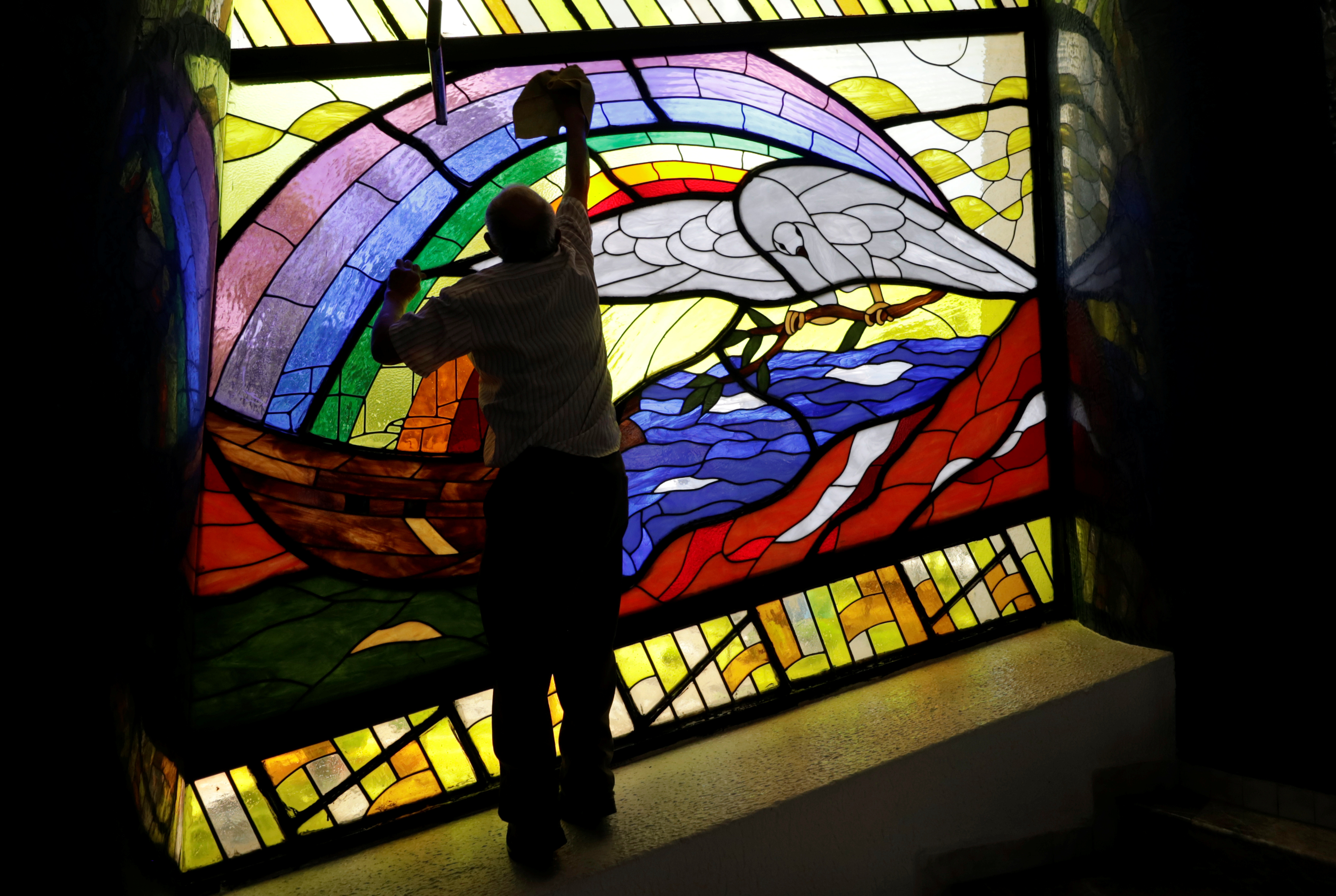
For Yazidis, Baghdadi’s death ‘doesn’t feel like justice yet’
By Raya Jalabi
SHARYA CAMP, Iraq (Reuters) – Islamic State leader Abu Bakr al-Baghdadi’s death will mean nothing to 19-year-old rape victim Jamila unless the Islamic State militants who enslaved her are brought to justice.
Jamila, who asked not to be identified by her last name, is one of thousands of women from the Yazidi minority religion who were kidnapped and raped by IS after it mounted an assault on the Yazidi homeland in northern Iraq in August 2014.
“Even if Abu Bakr al-Baghdadi is dead, it doesn’t mean Islamic State is dead,” Jamila told Reuters outside the tent that is now her temporary home in the Sharya camp for displaced Yazidis in Iraq’s Kurdistan Region.
“This doesn’t feel like justice yet,” she said. “I want the men who took me, who raped me, to stand trial. And I want to have my voice heard in court. I want to face them in court … Without proper trials, his death has no meaning.”
Baghdadi, who had led IS since 2010, detonated a suicide vest after being cornered in a raid by U.S. special forces in northwest Syria, U.S. President Donald Trump announced on Sunday.
Inspired by his edicts to enslave and slaughter Yazidis, whom IS regard as infidels, his followers shot, beheaded and kidnapped thousands in a rampage which the United Nations called a genocidal campaign against them.
Along with thousands of other women and children, Jamila said she was enslaved by the militants and kept in captivity for five months in the city of Mosul along with her sister.
She was just 14 when she was seized. But her problems did not end after she and her sister managed to escape when, she said, their guards were high on drugs.
“When I first came back, I had a nervous breakdown and psychological problems for two years, so I couldn’t go to school,” she said.
Now instead of working or catching up on her years of lost schooling, she looks after her mother, with whom she shares her cramped tent at the camp.
“My mother can’t walk and has health problems so I have to stay and take care of her because my older siblings are in Germany,” she said.
NO PLANS TO GO HOME
The prospect of going home to Sinjar in northern Iraq is not an option for Jamila, and many others. The city still lies in ruin four years after the IS onslaught, and suspicion runs deep in the ethnically mixed area.
“Sinjar is completely destroyed. Even if we could go back, I wouldn’t want to because we’d be surrounded by the same Arab neighbors who all joined IS in the first place, and helped them kill us (Yazidis),” she said.
Thousands of men are being tried in Iraqi courts for their ties to IS. Iraq has so far not allowed victims to testify in court, something community leaders and human rights groups say would go a long way in the healing process.
“It is deplorable that not a single victim of Islamic State’s horrific abuses including sexual slavery has gotten their day in court,” said Belkis Wille, Iraq Researcher for Human Rights Watch. “Iraq’s justice system is designed to allow the state to exact mass revenge against suspects, not provide real accountability for victims.”
For some of the nearly 17,000 Yazidis at the Sharya camp, Baghdadi’s death was a first step in that direction though they fear the IS fighters who are still alive.
Mayan Sinu, 25, can dream of a new life after the camp as she and her three children have been granted asylum by Australia. But she also wants the men who shot her husband in the legs and dragged him off to be brought to justice. He has been missing since the incident five years ago.
“I hope Baghdadi is suffering more than we ever did, and my God we suffered,” said Sinu. “I wish he (Baghdadi) hadn’t blown himself up so I could have slaughtered him myself with my bare hands.”
(Editing by Timothy Heritage)












